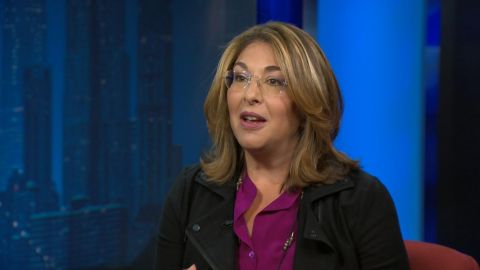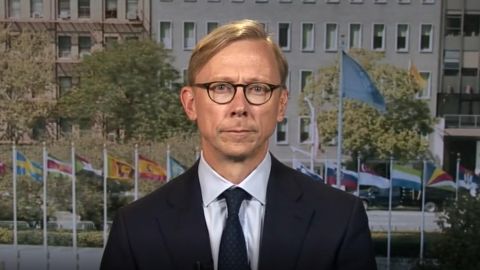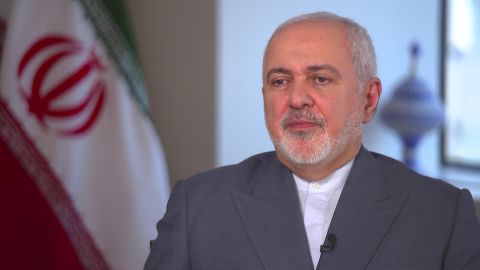Read Transcript EXPAND
CHRISTIANE AMANPOUR: You deny point-blank that Iran was responsible either for the tankers in June/July or for the Saudi oil fields. Are you just going to say it again that you didn’t do it despite the evidence?
MOHAMMAD JAVAD ZARIF, IRANIAN FOREIGN MINISTER: There is no evidence. And it would be a miracle to produce evidence because it didn’t take place. Had we been behind this, it would have been disaster for Saudi Arabia, nothing they could have repaired. The reason I’m taking this to Yemen is because it is Yemen. It is the Yemeni war.
AMANPOUR: Do you think the Yemenis did it?
ZARIF: They said they did it.
AMANPOUR: They said they did it.
ZARIF: They said they did it.
AMANPOUR: But very few people believe it.
ZARIF: Well, because very few people are not prepared to say that the most sophisticated American weaponry has been defeated by the Yemenis.
AMANPOUR: You say you didn’t do it and you’re not going to sit here and make a mea culpa and confession to CNN or PBS, but I want do you react to some of the statements coming from Iran. One of your top commanders in response to all of this has made threats to the United States and U.S. bases within range. Why would they be making threats if they’re not engaged in this kind of offensive action or you might call it defensive?
ZARIF: Because the United States has threatened to use force against Iran. This is a practice of the United States to say all military options are on the table. Secretary Pompeo was the first, which is absolutely incredible for a diplomat to make an accusation against Iran hours after the incident in Saudi Arabia. I’ve said it too. We’ve said it in a note to the United States that if the United States starts a war, it will not be the one ending it. But we won’t start a war. I could promise you that our military will not start a war. But we are very clear that if we are attacked, we will defend ourselves and there won’t be a limited war.
AMANPOUR: Another one of your commanders seems to be taunting the U.S. a little bit saying the U.S. has seen essentially nothing yet. We still have so many cards on the table. Again, these statements seem to suggest that if it’s not your government, maybe the Revolutionary Guard or the more hardliners are, in fact, you know, happy to take on the U.S., Saudi, other facilities, tankers.
ZARIF: That’s their job. If the country is attacked, then they have to defend the country. And the threat is coming from the United States, so we have to respond to the threat.
AMANPOUR: I don’t know whether you read the Sunday “New York Times” but the —
ZARIF: Not yet.
AMANPOUR: — front page says, aborting an attack on Iran shocked aides Trump. So, this was the one after you shot down the drown.
ZARIF: Yes.
AMANPOUR: And as you know, President Trump said, we are cocked and loaded, ready to go, and then he announced that they had pulled back.
About This Episode EXPAND
Iranian Foreign Minister Javad Zarif sits down with Christiane Amanpour to discuss the recent attack in Saudi Arabia. U.S. Special Representative for Iran Brian Hook joins the program to give his perspective from the UN. Naomi Klein explains her new book “On Fire: The (Burning) Case for a Green New Deal” to Hari Sreenivasan.
LEARN MORE


